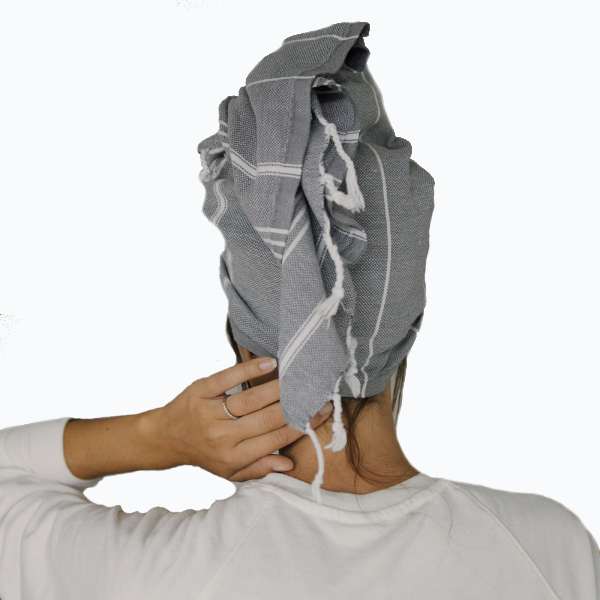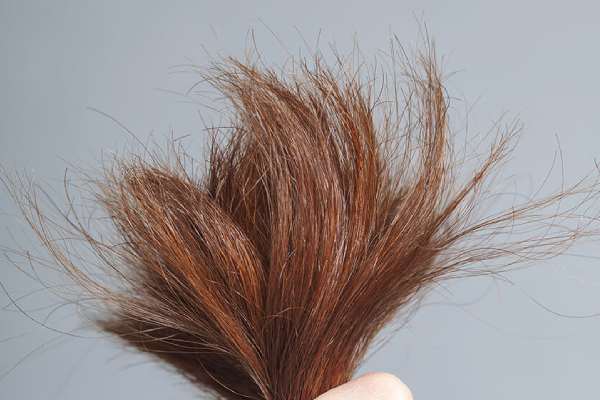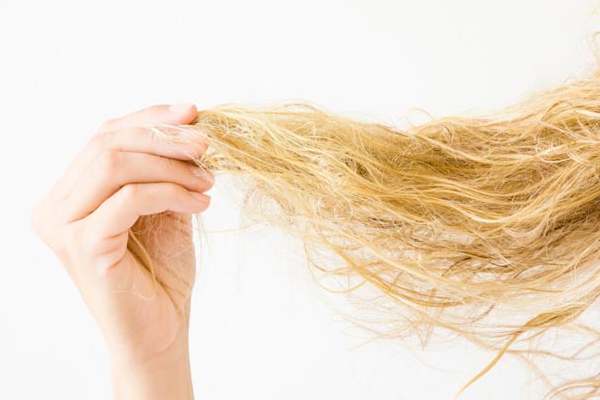The perfect curls are high maintenance, and finding the ideal styling method might require years. Plopping is one of the popular no-heat methods that curly-haired people pick for volume and definition. But this great method does come with a risk. Plopping overnight can cause fungus and bacteria growth in some cases. Read on to find out the possibilities of this happening to you.
What is Hair Plopping?
Plopping is basically like scrunching your hair, except you don’t leave it out to air dry, but wrap it in a towel or t-shirt. Water and styling products can weigh down loose curls, causing them to lose volume and definition. Plopping gives more voluminous curls by keeping your hair scrunched while drying.
Topics Explored
- Why is Plopping So Popular? »
- Can Plopping Overnight Cause Fungus? »
- Fungus You Can Catch from Overnight Plopping »
- Other Cons of Overnight Plopping »
- FAQs »
Why is Plopping So Popular?
Plopping gained massive popularity among people who were looking for fast and effective heat-free styling methods. Plopping is effective and practical – it cuts drying time, keeps your hair fuzz-free, and your curls defined and springy.
Can Plopping Overnight Cause Fungus?

The truth is plopping overnight can cause fungus. A damp and dark environment helps fungus thrive on your scalp, and the t-shirt or towel you use for plopping is an excellent breeding ground since it keeps the hair wet longer due to the lack of ventilation.
If your hair takes forever to dry in a plop, this increases your risk. You may contract certain fungal strains that can affect your body differently.
Fungus & Bacteria You Can Catch from Overnight Plopping
Overnight plopping can lead to fungus development and harbor certain bacteria. Each type of fungus strain affects your scalp differently and comes with varying consequences, as mild as dandruff and as severe as ringworms.
Malassezia
Malassezia is the fungus responsible for a flaky, itchy, and irritated scalp that eventually develops dandruff(1). While it is not the only cause of dandruff, it’s one of the most common. If left untreated, it can lead to severe inflammation of the scalp and many other symptoms that are hard to treat.
Candida
Candida is a yeast infection that thrives in a humid environment. An overgrowth of yeast can cause a severe infection manifested by itchy red patches, thick greasy scales, or soft white moist areas on the scalp(2). If left untreated, candida may lead to hair loss and damage to the hair follicles.
Ringworm (Tinea Capitis)
Despite the name, ringworm on the scalp isn’t caused by worms but dermatophytes(3) – a fungus resembling mold. In this case, the fungi invade the external layer of the scalp and hair shafts, causing itchy, flaky, and later bald patches on the head. Ringworm is a very contagious infection that can create scarring or permanent hair loss.
Black Piedra
Black piedra is a fungal infection of the hair shafts that is common in hot and humid regions. The fungal particles are connected to the hair shaft to form nodules(4). When looked up close, you can see the firmly attached brown-black nodules, which are less than 0.03 inches in size.
In some situations, when a person with pre-existing health conditions contracts black piedra, they run the risk of developing alopecia.
Bacteria Causing Folliculitis
When hair follicles are weakened or damaged, certain bacteria can easily penetrate the skin on the scalp, leading folliculitis(5). One of the main causes of this bacterial infection is wearing tight wraps around the head or keeping your scalp damp for an extended time. Folliculitis is manifested by red rings around each hair follicle, causing pain and itching.
Aspergillus Fumigatus
Aspergillus fumigatus is a type of fungus that doesn’t grow on your scalp, but it’s the most common one found in pillows. It breeds on damp pillowcases and t-shirts or other towels used for plopping. It can cause adverse health outcomes like respiratory issues, especially in those immunocompromised, dealing with allergies, asthma, or sinusitis(6).
Other Reasons Why Plopping Overnight May Not Be Best
Scalp health is not the only reason why plopping overnight may not be the best choice for hair styling. Your hair health can also be compromised. Long-term damage other than fungus and bacteria can arise from overnight plopping.
Hair Breakage
Wet hair is naturally more fragile and prone to breakage. When wet, the hair’s cuticle is open so it can stretch more, but it can also stretch to the extent of breaking. Plopping your hair overnight means you’ll be tossing and turning with wet hair, which also increases the chance of further breakage.

Knots and Frizz
Instead of defined curls, plopping overnight can lead to knots and frizz. Tossing and turning with wet hair can easily bunch up your hair and cause knots and tangles. Trying to remove the knots will lead to extra frizz and far from a tidy, defined hairstyle.

Summary: Plopping Overnight Can Cause Fungus?
Despite everything, plopping overnight doesn’t lead to fungus in everyone. Some people manage to plop their hair for years without issues, while others are prone to catching scalp fungus or bacteria at the very beginning of their plopping experience. If you want to try out this styling method, get informed about any potential issues and dangers before making a choice.
FAQs:
Can I plop my hair overnight?
If you’re tempted by someone who had a great experience plopping their hair, get informed about the possible side effects including fungal and bacterial growth, and long-term hair damage. Defined and voluminous curls are great, especially if you can get them effortlessly, but health comes first, and there are other safer styling methods.
How long should you plop your hair?
Generally speaking, the time your hair is plopped needs to be equal to the time your hair takes to dry. However, the drying time is individual; it depends on the hair density and length. Also, you don’t want to make plopping overnight a habit as it can cause fungal growth and damage to your hair and scalp.
Is plopping bad for your scalp?
Plopping can be bad for your scalp in some cases, as the prolonged exposure to moisture can lead to fungus and bacteria development. The scalp is fragile, and just like the skin on your body, it’s susceptible to scaling, itching, peeling, fungus infections, and permanent damage. The worst cases end up with damaged follicles and permanent hair loss.
Verified Sources:
- Head & Shoulders: https://www.headandshoulders.co.in/en-in/healthy-hair-and-scalp/dandruff/dandruff-home-remedies-by-experts
- Very Well Health: https://www.verywellhealth.com/yeast-on-scalp-5184987
- Mayo Clinic: https://www.mayoclinic.org/diseases-conditions/ringworm-scalp/symptoms-causes/syc-2035491
- U.S. National Library of Medicine: https://www.ncbi.nlm.nih.gov/books/NBK545178/
- American Academy of Dermatology Association: https://www.aad.org/public/diseases/a-z/folliculitis
- CDC: https://www.cdc.gov/fungal/diseases/aspergillosis/index.html